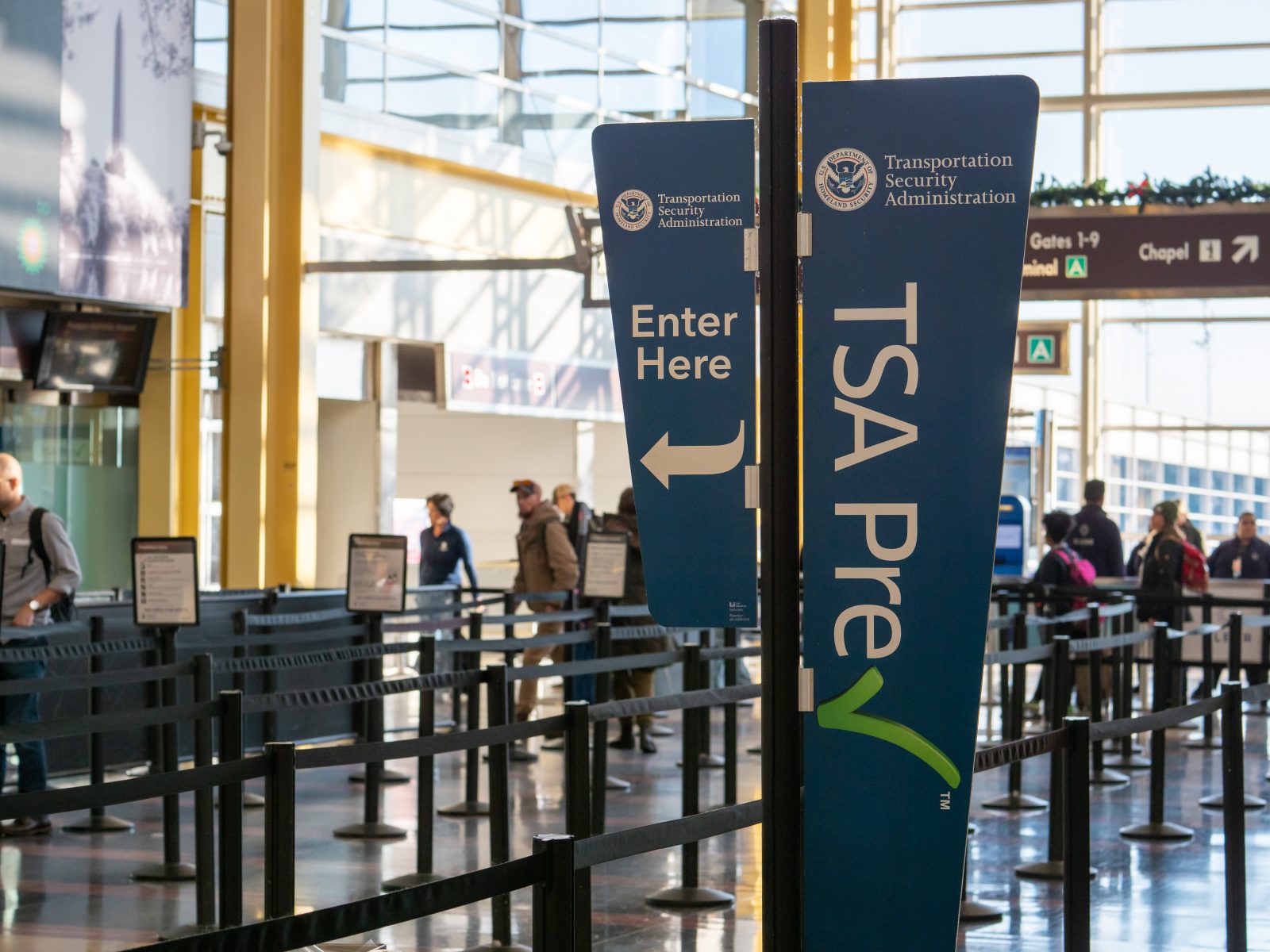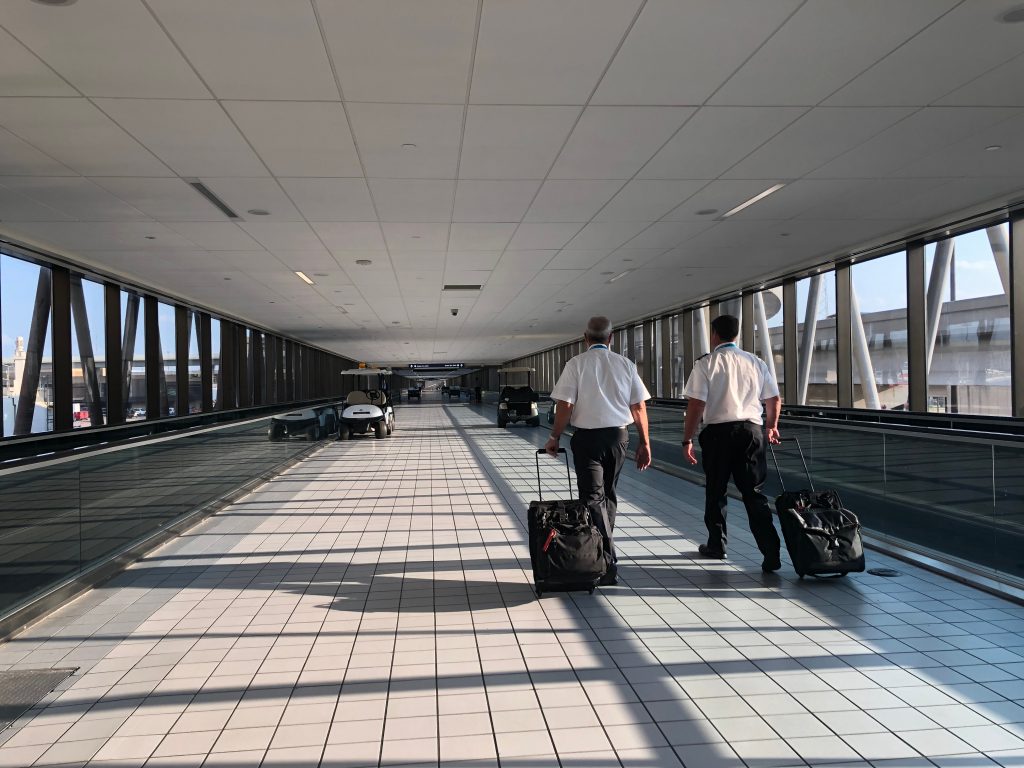
The Allied Pilots Association, which represents pilots at American Airlines, has told its members to resume using special expedited TSA security checkpoints that are reserved just for airline crew after a dispute over ‘random’ enhanced checks.
Earlier this month, APA president Captain Ed Sicher told pilots at the Dallas Fort Worth-based carrier to bypass the expedited ‘Known Crewmember’ (KCM) lines and instead use normal passenger screening lanes in a move that threatened to overwhelm the TSA.

The Known Crewmember program is meant to allow trusted airline personnel like airline pilots and flight attendants to breeze through airport checkpoints with virtually no screening at all but in recent months, the TSA has significantly increased the number of ‘random’ secondary screenings.
Sicher blasted that KCM was no longer “expeditious” and that the privilege of using the program “has become anything but due to the rising number of secondary screenings our pilots are being subjected to on a regular basis”.
Both APA and the Air Line Pilots Association suggested pilots stop using the KCM lane and instead use the normal passenger screening route. ALPA president Captain Joseph DePete warned this could quickly ‘overwhelm’ the system.
But on Friday, Sicher had a change of heart and said his union was no longer recommending pilots to bypass the KCM lane.
Created in 2011 as a joint initiative between industry trade group Airlines for America (A4A) and the ALPA, the KCM program was designed to expedite screening for crew members who have already undergone extensive security vetting.
The program is now being brought in-house by the TSA and it could be renamed KCM the Expedited Crew Access program. The rise in secondary screenings is said to be in response to headline-grabbing breaches of the program and the TSA says it is “continuously working with our aviation partners to ensure Known Crewmember Program (KCM) compliance”.
DePete has complained that ALPA is no longer being included in TSA discussions about the evolving KCM program but on Friday, Sicher said he needed the help of his members to help shape the new program.
What that might look like remains to be seen. The APA did not immediately respond to a request for comment.
Mateusz Maszczynski honed his skills as an international flight attendant at the most prominent airline in the Middle East and has been flying ever since... most recently for a well known European airline. Matt is passionate about the aviation industry and has become an expert in passenger experience and human-centric stories. Always keeping an ear close to the ground, Matt's industry insights, analysis and news coverage is frequently relied upon by some of the biggest names in journalism.








It’s interesting that this “change of heart” came one week after an airline employee tried to smuggle a large amount fentanyl through a known crewmember checkpoint in San Diego.
I empathize with the many frustrations of pilots and other airline employees, and appreciate their hard work, especially around the holidays. But the special privileges cant be expanded when doing so results in this kind of risk to the community. Avoiding even a one in a thousand chance of a child dying of accidental fentanyl exposure is worth having pilots go through slower screening.
One bad apple spoils the bunch
Like any privilege, abuse always rears its ugly head. Recent airline employees busted for smuggling dope and cash are simple examples. Random checks should occur as frequently as busts.
How could the pilots overwhelm the TSA security line? For every two pilots approaching security approximately 150 plus customers are processed on mainline flights. Pilots make up only a small percentage of TSA processing. Maybe dedicsted programs and speciial crew lines for pilots are really unnecessary.